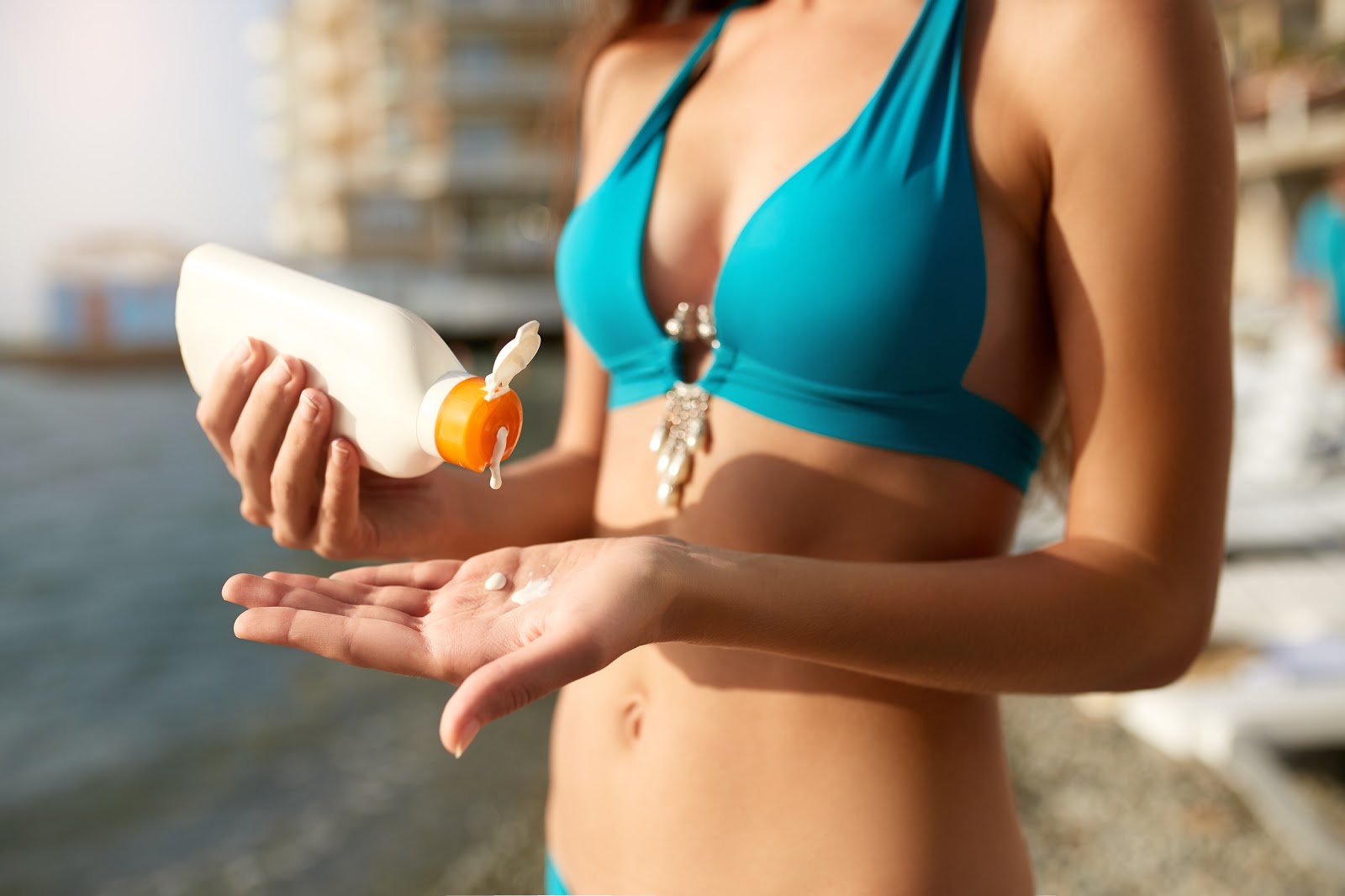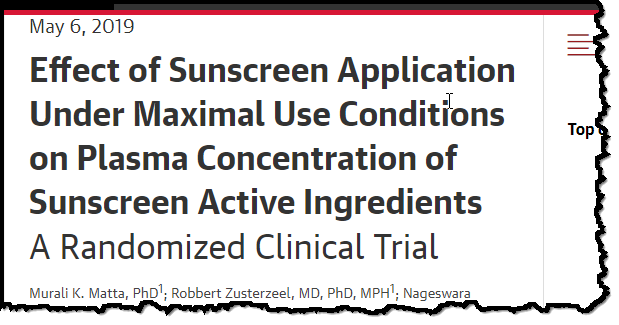
And let’s face it — most of us are using WAY more than 2mg per day…

—-Important Message From Our Sponsor—-
This patent will change your life
Comes now a huge joint discovery for men with pain…3 patents awarded…
…invented by an American chemist…
…this SHUTS DOWN your joint pains on contact…
But…there is a problem. It works TOO well…
And unfortunately, Big Pharma is spending millions trying to keep this out of the media… and out of your hands forever.
Luckily, a group of brave doctors brought this breakthrough out of the shadows… and men across the world are finally getting the relief they deserve.
Click here to discover this instant rub-on-relief
———-
2mg of sunscreen kills men’s potency
We’ve been told for DECADES by dermatologists that sunscreen protects against skin cancer and to use it every day, no matter what.
You probably already know that ANYTHING Big Pharma tells us to use every single day, I’m pretty skeptical of.
And sunscreen is no exception…
The question that really needs to be asked, though, is HOW much of the chemicals in sunscreen are absorbed into your body?
And do we have ANY idea of the effects they have on your system?

Surprisingly, even with the $650 million a year of sunscreen that is sold in the U.S. alone, we are only NOW getting decent data about the chemicals that show up in your blood from regular sunscreen use.
2 mg of sunscreen were applied each day…
In this study, they had the participants apply just two mg of sunscreen to their skin four times a day – for just four days.
“Two mg of sunscreen per 1 cm2 was applied to 75% of body surface area 4 times per day for 4 days, and 30 blood samples were collected over 7 days from each participant.”
Two mg is not a large amount. And if you are applying sunscreen on a regular basis, then you may very well be using way more than that.
Also, many people use sunscreen every single day, especially in warm weather months or in warmer climates.
So I think this study is on the light side and that many people use WAY more sunscreen then this.
The chemicals in sunscreen absorb through your skin into your blood.
Even in these small quantities, the study showed that the chemicals in the sunscreen were absorbed into the blood at rates that EXCEEDS the FDA thresholds!
“In this preliminary study involving healthy volunteers, application of 4 commercially available sunscreens under maximal use conditions resulted in plasma concentrations that exceeded the threshold established by the FDA for potentially waiving some nonclinical toxicology studies for sunscreens. The systemic absorption of sunscreen ingredients supports the need for further studies to determine the clinical significance of these findings.”
One of these ingredients is a known anti-androgen.
One of the common ingredients that is absorbed into the blood is oxybenzone.
This ingredient is estrogenic and an anti-androgen.
That means it can interfere with male hormone production!
“Oxybenzone can cause allergic skin reactions…” (Rodriguez 2006).
“In laboratory studies it is a weak estrogen and has potent anti-androgenic effects…” (Krause 2012, Ghazipura 2017)
Unfortunately, the levels of oxybenzone that can be absorbed through the skin are quite high… Even with a SMALL amount of sunscreen.
“The primary outcome was the maximum plasma concentration of avobenzone. Secondary outcomes were the maximum plasma concentrations of oxybenzone, octocrylene, and ecamsule.”
Sunscreen also blocks the production of vitamin D.
There is also some evidence that sunscreen can block the production of Vitamin D.
“Sunscreen prevents sunburn by blocking UVB light. Theoretically, that means sunscreen use lowers vitamin D levels.”
Your body makes vitamin D from sunlight and not having enough of it can cause you to be susceptible to lung problems and other diseases.
The bottom line here is that if you are going to use sunscreen you should use it sparingly and be aware of the risks.
It’s a better idea to wear protective clothing to avoid sunburn rather than using sunscreen.
And remember, if you have direct exposure of your skin to the sun for 15 to 30 minutes a day, your body will do a much better job of producing Vitamin D.
—-Important Message from Lisa—-
Why young women love being with older men
Hi, I’m Lisa, and recently, young men who edit Buzzfeed were tested…
…and they all showed really low testosterone levels compared to older guys.
Keep in mind that the normal range is 400 – 1100, with higher being better.

These young guys have seriously low T levels…and trust me…
…that’s not doing them any favors in the bedroom!
Young women like me actually love being with older men because men with high T get better “rockiness”, have more stamina, and a higher drive.
And I’ve always been a woman with a high sex drive…
So to make sure my hubby’s T stays high even as he gets older, I give him these tasty T-boosting snacks…
They’re all-natural — and thanks to these T-boosting snacks, my husband outperforms men half his age in bed…
———-
